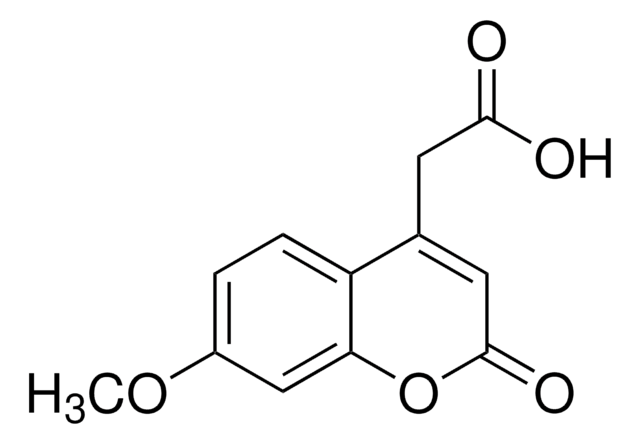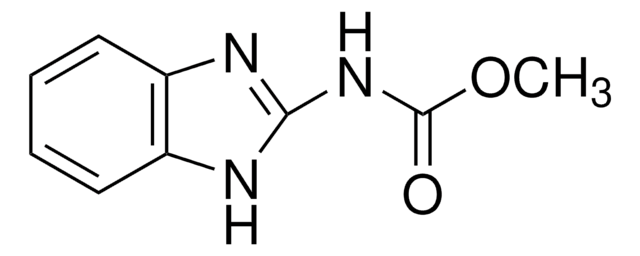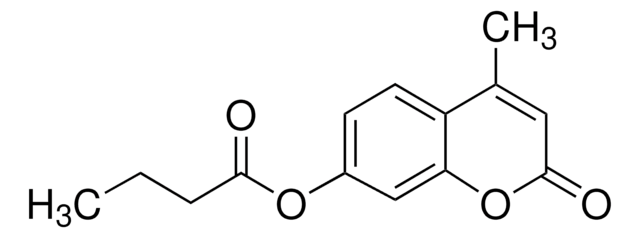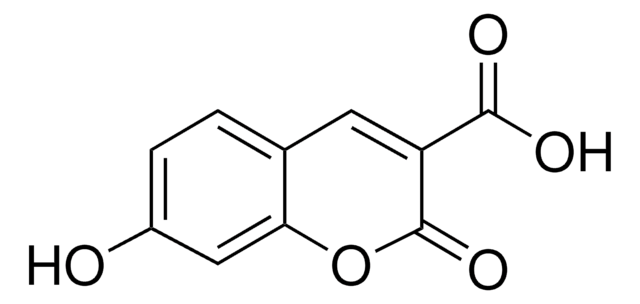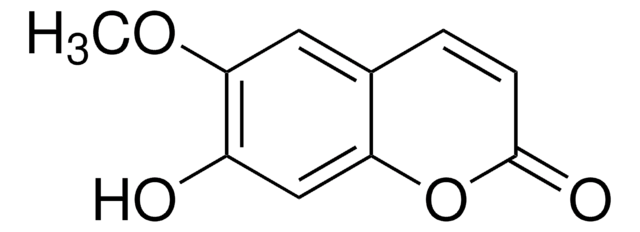64951
7-Methoxycoumarin
suitable for fluorescence, ≥98.0% (TLC)
Synonym(s):
Herniarin, Methyl umbelliferyl ether
About This Item
Recommended Products
Assay
≥98.0% (TLC)
form
solid
mp
117-121 °C (lit.)
solubility
DMF: soluble
acetonitrile: soluble
alcohols: soluble
chloroform: soluble
fluorescence
λex 350 nm; λem 385 nm (Reaction product)
λex 350 nm; λem 385 nm in chloroform
suitability
suitable for fluorescence
SMILES string
COc1ccc2C=CC(=O)Oc2c1
InChI
1S/C10H8O3/c1-12-8-4-2-7-3-5-10(11)13-9(7)6-8/h2-6H,1H3
InChI key
LIIALPBMIOVAHH-UHFFFAOYSA-N
Looking for similar products? Visit Product Comparison Guide
Application
Storage Class Code
11 - Combustible Solids
WGK
WGK 2
Flash Point(F)
Not applicable
Flash Point(C)
Not applicable
Personal Protective Equipment
Certificates of Analysis (COA)
Search for Certificates of Analysis (COA) by entering the products Lot/Batch Number. Lot and Batch Numbers can be found on a product’s label following the words ‘Lot’ or ‘Batch’.
Already Own This Product?
Find documentation for the products that you have recently purchased in the Document Library.
Customers Also Viewed
Our team of scientists has experience in all areas of research including Life Science, Material Science, Chemical Synthesis, Chromatography, Analytical and many others.
Contact Technical Service
